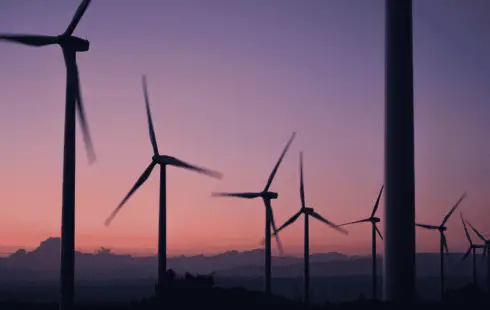
Crypto Investment Entry and Exit Strategies of Institutional Investors
Section: Business
 It's been a good three years since Minister President and CSU leader Markus Söder announced the rapid construction of at least a hundred wind turbines in Bavaria's state forests. Even then, experts predicted that nothing would come of it as long as the 10-H rule applied. The controversial rule states that the distance between each new wind turbine and the nearest village must be ten times the height of the turbine. That's at least two kilometers. Söder had apparently not considered that there are only very few state forests in Bavaria that meet this requirement. In fact, nothing has come of the prime minister's announcement so far. Not a single new wind turbine has been installed in the state forests since 2019.
It's been a good three years since Minister President and CSU leader Markus Söder announced the rapid construction of at least a hundred wind turbines in Bavaria's state forests. Even then, experts predicted that nothing would come of it as long as the 10-H rule applied. The controversial rule states that the distance between each new wind turbine and the nearest village must be ten times the height of the turbine. That's at least two kilometers. Söder had apparently not considered that there are only very few state forests in Bavaria that meet this requirement. In fact, nothing has come of the prime minister's announcement so far. Not a single new wind turbine has been installed in the state forests since 2019.
But now the Bavarian State Forests (BaySF), which manage the state forests, are expecting a run on the state forests. That's because Federal Economics Minister Robert Habeck (Green Party) has forced Söder and the opponents of wind power in the CSU to at least somewhat soften their previous blockade policy against wind power with his Wind Power on Land Act. According to the new wind power law, which Construction Minister Christian Bernreiter (CSU) wants to introduce into the state parliament after the summer break, among other things the distance between new wind turbines and villages in the forests in Bavaria is to be reduced to one thousand meters. BaySF is therefore gearing up in the near future "for a very high level of inquiry from investors, project developers and operators," according to a spokesman for the state-owned company.
Where demand is high, competition is fierce and trouble is inevitable. According to the spokesman, BaySF wants to keep the latter in particular as small as possible. "Our goal is to allocate potential wind turbine sites publicly, transparently, without discrimination and, above all, quickly," he says. "That's why we decided on a bidding process." Above all, the municipalities on whose land the turbines are to be erected and the local population are to benefit. The model for the bidding process is the green-black-ruled state of Baden-Württemberg, where the expansion of wind power has been massively pushed for longer than in Bavaria. There, the ForstBW recently put wind turbine sites with a total area of 1200 hectares of state forest out to tender for about 39 turbines. This was already the third round of tenders. In the two previous rounds, sites with a total area of 2800 hectares were allocated for about 90 wind turbines. There was great interest from planners, operators and investors. The number of bids regularly exceeded the number of sites put out to tender many times over.
BaySF says it wants to place a particularly high priority on the interests of the affected communities and the local population in its selection process. "This means that, as a first step, we identify forest areas that are suitable for wind turbines and agree on the framework conditions for the tender with the respective siting municipality," says the spokesman. The latter concerns, for example, the number of wind turbines, but also very centrally a financial participation of the local population in the turbines. Because then the local residents can also profit from the wind power through the return on their investment.
In the second step, BaySF will offer the areas, including the tendering modalities, on its website. "Of course, we expect the bidders to take the specifications into account in their offers," says the spokesman, "and in particular to provide concrete information on the participation opportunities for the local population." At the end of the selection process, a so-called site securing agreement will be concluded with the successful bidder. "In this way, we ensure that only project partners who fulfill the will of the site communities are selected," says the spokesman. The state government made this a requirement for BaySF long before Söder's time as Minister President, so that the state-owned company could enter the wind power business.
Photo by Anna Jimenez Calaf

Section: Business

Section: Arts

Section: Arts

Section: Business

Section: Business

Section: Arts

Section: Health

Section: Arts

Section: News

Section: News
Health Insurance in Germany is compulsory and sometimes complicated, not to mention expensive. As an expat, you are required to navigate this landscape within weeks of arriving, so check our FAQ on PKV. For our guide on resources and access to agents who can give you a competitive quote, try our PKV Cost comparison tool.
Germany is famous for its medical expertise and extensive number of hospitals and clinics. See this comprehensive directory of hospitals and clinics across the country, complete with links to their websites, addresses, contact info, and specializations/services.
One of the most beautiful squares transforms into a summer stage every year for two days. The Gärtnerplatz Open-Air features a free music and cultural program across three stages, as well as street food from local vendors. On Saturday, the main stage at Gärtnerplatz offers something for everyone,...



No comments yet. Be the first to comment!